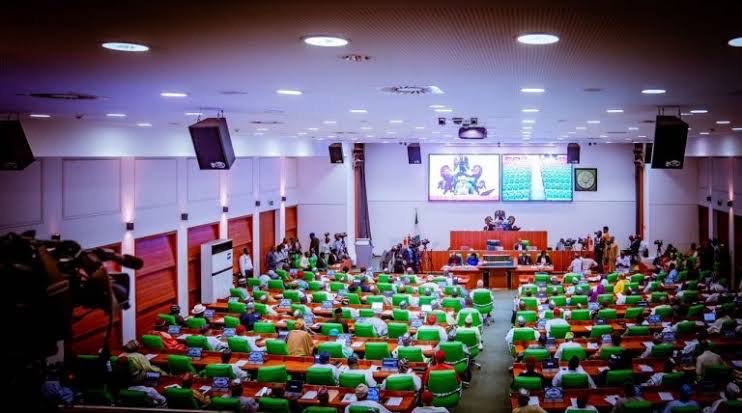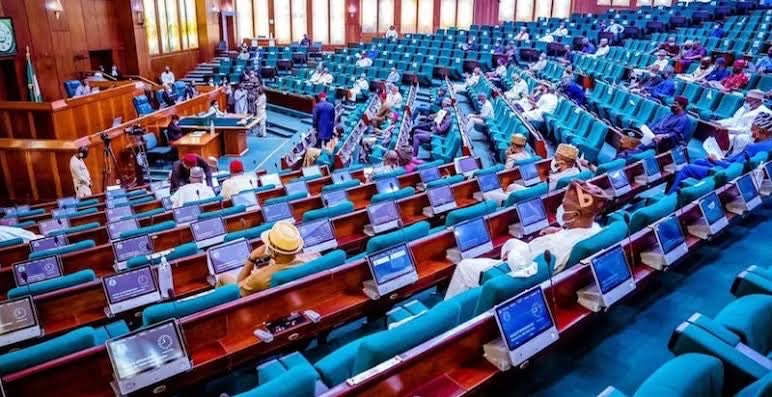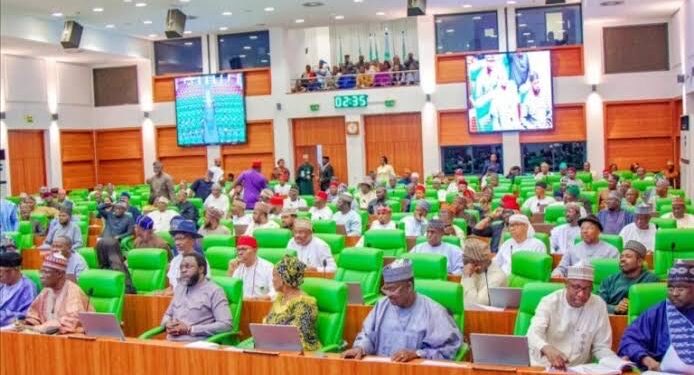Certain members of the House of Representatives have presented a bill aimed at amending the 1999 Constitution (as revised) to establish a single six-year term for both the president and governors. Additionally, these legislators are advocating for a bill that proposes the rotation of the presidential, gubernatorial, and local government chair positions across the six geo-political zones, as well as the constituent parts of states and council areas, respectively.
The bills, championed by Ikeagwuonu Ugochinyere, Paul Nnamchi, Chimaobi Atu, and 27 others, also include provisions for modifying the Constitution to allow for the appointment of two vice presidents in the nation. Furthermore, these lawmakers are urging for an amendment to the Electoral Act to facilitate the simultaneous conduct of presidential, gubernatorial, national, and state assembly elections on the same day.
During a press briefing in Abuja, Ugochinyere expounded on the bills, emphasizing that if they were to be enacted into law, they would address governance concerns such as reducing the cost of governance and campaigns, fostering national unity, and ensuring a smooth transition, among other critical issues.

He remarked, “It is evident that our nation is in dire need of a lasting solution to our economic challenges, security threats, disunity, weakened institutions, deficient health and education sectors, public sector corruption, and misuse of state resources. We have now arrived at a pivotal juncture where the very survival of Nigeria as a unified political and economic entity is at stake. We must rise to meet this challenge, as the decisions we make with this opportunity given to us by our citizens hold significant weight.”
Ugochinyere elaborated on the proposed governance reforms, stating, “We recommend a constitutional amendment that mandates the rotational distribution of executive powers among the six geo-political zones to ensure equitable representation and mitigate the fervor and clamor for state creation. Additionally, we propose amending Section 3 of the Constitution to officially recognize the division of Nigeria into six geo-political zones.”
“To promote efficiency in governance, reduce government expenditure, and enhance national stability, we suggest amending the Constitution to establish a singular six-year term for the president and governors of the Federal Republic of Nigeria. Moreover, we advocate for the creation of two vice presidential positions, one from the southern and the other from the northern region of Nigeria, with the first vice president serving as a successor and the second overseeing the Economy portfolio.”

The legislator emphasized that the bills, which have undergone initial reading and await the second reading, include provisions for ensuring financial autonomy and accountability of local government councils by establishing an independent Consolidated Local Government Council Account solely managed by local councils. The bills also propose stringent penalties, including extended imprisonment terms, for any misappropriation of local government funds.
“To reinforce accountability, we propose amending Section 162(5) of the 1999 Constitution to stipulate that any state government failing to remit the allocated funds to local government councils within its jurisdiction will forfeit future allocations from the Federal Government.”
Regarding electoral reforms, Ugochinyere disclosed that the legislators are advocating amendments to the Electoral Act to mandate the simultaneous conduct of all elections on a single day. Additionally, they propose that no election winner declaration be made until the relevant INEC officials cross-reference the results with the accredited voter’s list and ensure their alignment with the B-VAS machine or any other electronic device.
He further underscored the importance of holding INEC officials accountable for false result declarations by proposing amendments that would subject them to both civil and criminal liabilities. The bills also seek to expedite election-related litigation resolution prior to the swearing-in of the elected officials.
Ugochinyere urged Nigerians to rally behind these bills to ensure their successful passage in the House, asserting, “This endeavor is monumental and requires collective effort. We have taken the initiative to introduce these bills in parliament, but their success hinges on all of us.”
He concluded, “Our commitment is to cultivate a united, stable, and prosperous nation, and with your input, collaboration, and support, Nigeria can and must evolve into a prominent and modern nation. Let us unite with sincerity and determination to serve our great country so that it becomes a source of pride for all.”
Meanwhile, the Minority Leader of the House, Kingsley Chinda (PDP-Rivers), has advocated for a return to the parliamentary system of government. Chinda contends that adopting a homegrown parliamentary system would better address the challenges confronting the nation, as the current presidential system was transplanted without due consideration of Indigenous contexts.
He highlighted that the existing system is predisposed to failure, given the country’s historical background, diverse experiences, and wealth of diversity that should ideally serve as an asset.



































